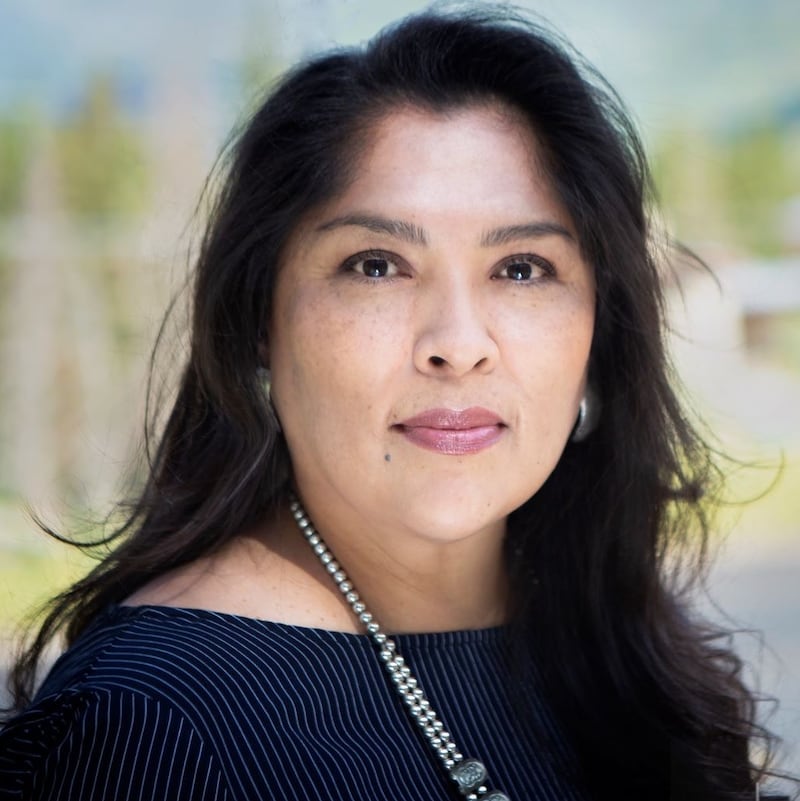My name is Davina Smith, and I’m running for the Utah State House of Representatives in District 69, which includes San Juan, Grand, Kane, Garfield, Wayne and part of Emery counties.
One evening, I was knocking voters’ doors in Emery County and I entered a young couple’s house. Children were playing and dogs were barking, but they invited me in to have a conversation on their brown leather couch.

The mounted deer heads and fox tails that covered the living room walls led to a discussion on how to hunt respectfully. We discussed how out-of-towners visit Utah to go hunting without respecting the animals or local regulations. I shared that my family grew up hunting and it’s a deep part of my Navajo culture.
I listened to their concerns about the lack of alternatives to four-year colleges for their teenage son. I discussed my plan to expand trade apprenticeship programs in rural Utah. My dad was a welder and a farmer and we agreed on the importance of high-wage, high-skilled trades jobs as the backbone of our rural communities.
After an hourlong conversation, we agreed that the rural communities in our state have been neglected for far too long. We always say that we need more transparency and accountability in politics, but what does that mean? How do we tell if a politician authentically wants to serve all of their constituents? I can say that I’m not a career politician, that the campaign’s financial records are public and that I care about my constituents, but maybe you’ve heard that all before.
What I can tell you is that I have not hidden who I am during this campaign. I’ve been told to hide my indigenous identity to gain voters. I’ve been told to not talk about my connection to the land. I’ve been told to speak differently, to spend our money on big city consultants, to not waste time knocking doors. However, I’m not interested in changing my values or my identity to get into office. I’m not interested in doing politics in a conventional, manicured way that exacerbates partisan divides and turns neighbors against each other.
I ran for office because I didn’t see true representation for my rural neighbors — Indigenous and non-Indigenous. We are not being fought for at a state level. I listen to everyone’s story, no matter where they live, what they look like, or who they voted for in 2020. My whole life, I’ve demanded that the stories of my community members be heard. Urban policy makers are out of touch with the needs of our rural communities — I will bridge this divide by sharing the stories of my constituents on the Capitol floor. I’m a mother of four. I want rural Utah to continue to be livable for our kids and our grandkids.
“So … you have conservative values, so I’m assuming you’re a Republican,” the husband said to me. I told him I was actually registered as a Democrat, but that he touched on an important point. We do share common values and want the same thing for our kids.
Politics should be based in real conversation, not divisive games. We both saw each others’ humanity, struggles and love for our community. He voted for Donald Trump in 2020 and thought their family was doing better financially since. Despite our party differences, they said they’d take a Davina for Utah yard sign. We shook hands, and I walked outside into the setting sun.
It was an emotional moment — the restorative discussion was proof that healing is possible across party lines. Proof that no matter how deep the polarization in our country is, there is room for common ground and mutual respect. I’ve driven tens of thousands of miles during this campaign to meet with voters and local officials all across my district. I’m running for the Utah State House of Representatives because conversations like these will allow us to move toward a brighter future for rural Utah and for our country as a whole.
Davina Smith is the first Diné (Navajo) woman to run for the Utah State House of Representatives. She was raised in Monument Valley in San Juan County, Utah, and currently lives in Blanding. She is running to represent House District 69 to ensure future generations can thrive in rural Utah.

